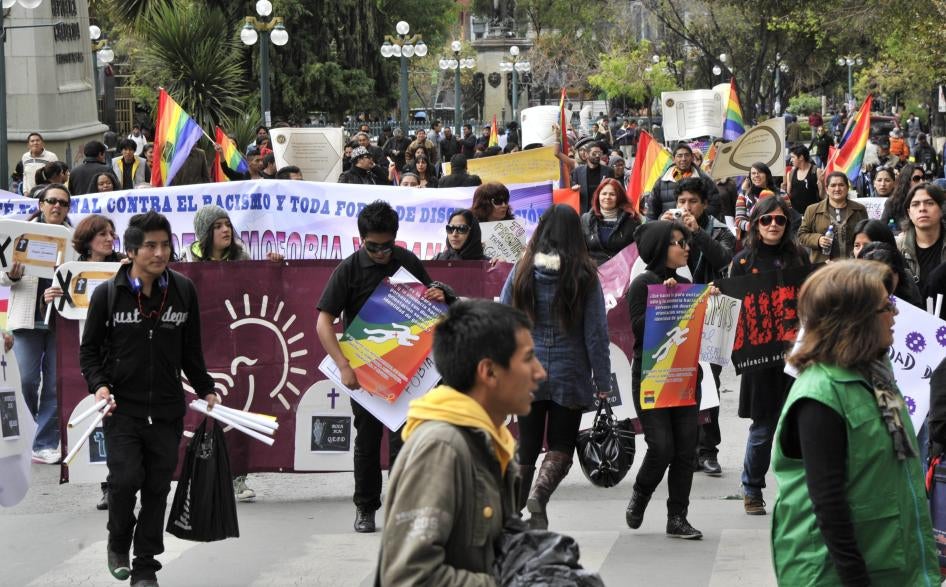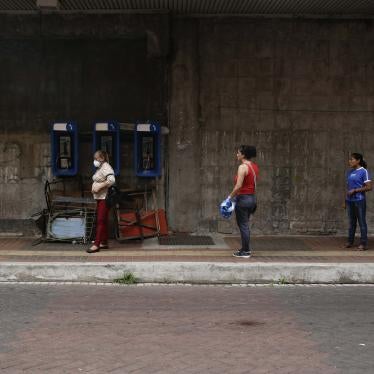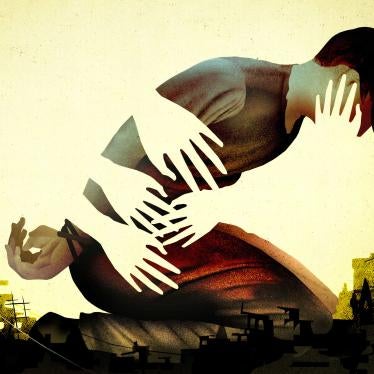(Washington, DC) – The national civil registry (Registro de Servicio Cívico, SERECÍ) of Bolivia should comply with a court ruling to register a same-sex couple’s relationship as a “free union,” Human Rights Watch said today. All civil registries in Bolivia should end discrimination against same-sex couples and start registering their relationships as free unions.
The case stemmed from an effort by David Aruquipa and Guido Montaño, a gay couple who have been together for over a decade, to register their relationship as a free union under the Bolivian Code of Families in October 2018. The Bolivian Constitution states that free unions between a man and a woman have the same effects as a civil marriage, including with respect to the couple’s property and children.
Under a July 3, 2020 ruling by the Second Constitutional Chamber of the La Paz Department Tribunal the national civil registry must register their relationship as a free union by August 10.
“The La Paz court’s decision in favor of same-sex unions strengthens the principle of equality before the law, which is a pillar of any democratic society,” said José Miguel Vivanco, Americas director at Human Rights Watch. “The civil registry should heed the La Paz court’s ruling and recognize David Aruquipa and Guido Montaño’s union, just as it does with different-sex unions.”
When the couple applied to the registry office in La Paz, it would not accept the application, claiming that it had no procedures allowing free unions between same-sex couples. The couple filed administrative appeals, citing international human rights standards and constitutional non-discrimination principles, but in a September 2019 resolution, the national civil registry rejected the couple’s request.
In striking down the national civil registry’s resolution, the court made clear that the Bolivian Constitution requires laws and administrative procedures be interpreted in a manner consistent with the principles of equality and non-discrimination, including on the basis of sexual orientation, enshrined in the constitution.
The court also held that the civil registry had violated the couple’s due process rights, in part because it had not considered Bolivia’s international legal obligations. Bolivia’s Constitutional Court has previously ruled that domestic law needs to be interpreted in a manner consistent with international human rights obligations.
The La Paz court also cited a landmark 2017 opinion by the Inter-American Court of Human Rights, affirming that under the American Convention on Human Rights, all rights applicable to the family relationships of heterosexual couples should also extend to same-sex couples. The ruling provides an authoritative interpretation of the American Convention on Human Rights, to which Bolivia is a party. In recent years, the constitutional courts of Costa Rica and Ecuador have also ruled in favor of same-sex relationships, citing the Inter-American opinion.
“Gay and lesbian couples are an integral part of Bolivia’s social fabric and deserve to be recognized by the state and its institutions,” Vivanco said. “All civil registries in Bolivia should stop treating them like second class citizens and start recognizing their unions.”
Bolivia: Civil Registries Should Recognize Same-Sex Unions
High Court Rules Against Anti-LGBT Discrimination
Your tax deductible gift can help stop human rights violations and save lives around the world.
Topic
Most Viewed
-
December 16, 2015
Syria: Stories Behind Photos of Killed Detainees

-
December 16, 2015
If the Dead Could Speak

-
October 16, 2012
Death of a Dictator

-
August 29, 2024
South Korea’s Digital Sex Crime Deepfake Crisis

-
December 8, 2024
A New Dawn for Syria





